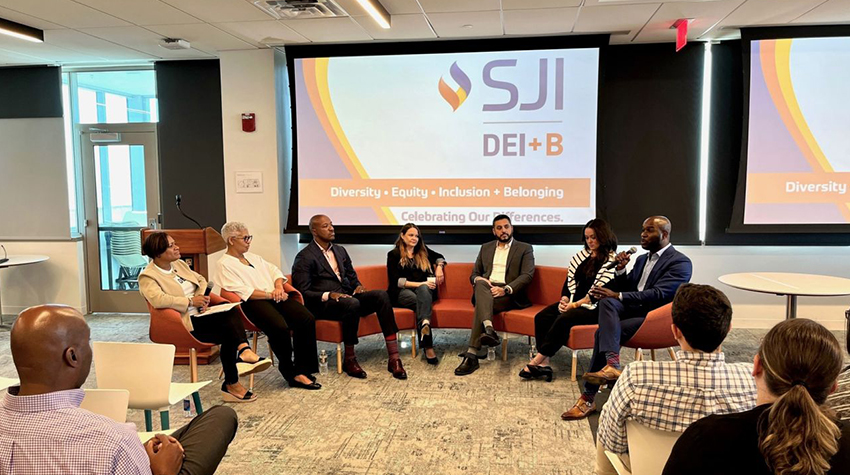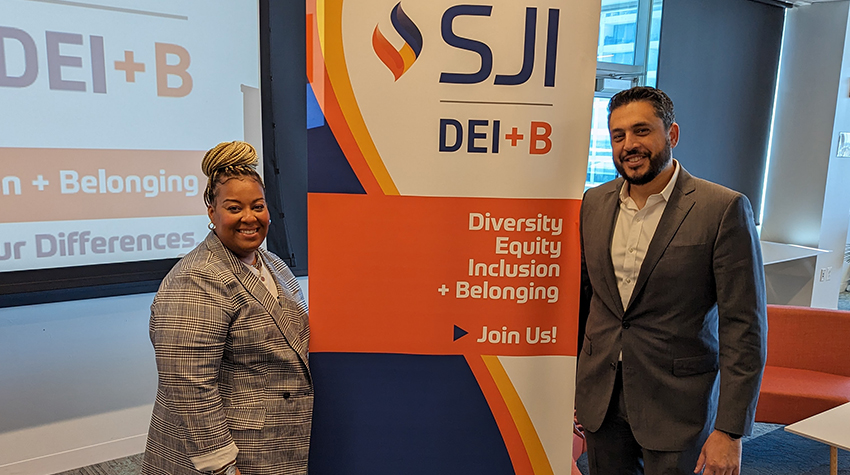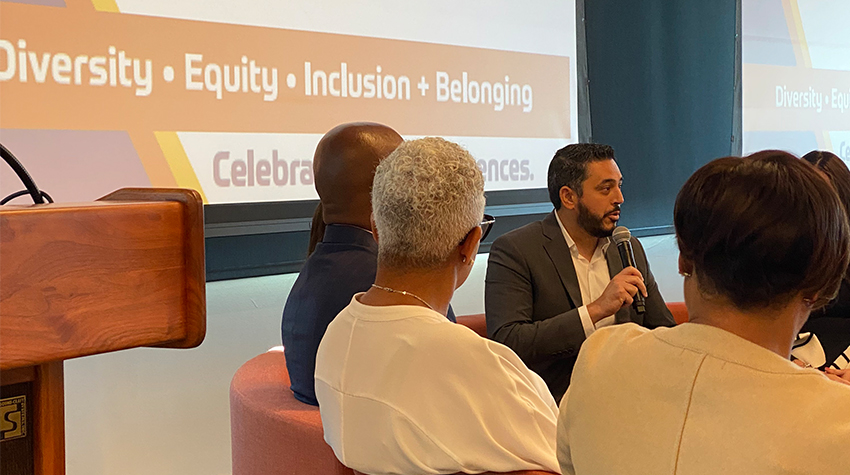Director of Info Systems Presents at First SJ Industries DEI+B Summit
By Walead Abdrabouh
Walead Abdrabouh, director of Information Systems and Business Intelligence, was a guest speaker at South Jersey Industries’ DEI+B (Diversity, Equity, Inclusion + Belonging) Summit, where issues and actionable suggestions were discussed in support of fostering a diverse, equitable, and inclusive environment. The following is a reflection on that summit.
How will organizations respond to technology trends to ensure a level of equality and inclusion?
On Sept. 20, South Jersey Industries hosted its inaugural DEI+B Summit, which included guest speakers and panel discussions on the subject of diversity, equity, inclusion and belonging. One of the panel sessions, in which I was a participant, revolved around various trends on the horizon, particularly from a human capital, technology, environmental, social and governance (ESG) perspective, and how organizations might respond to these trends as they ensure equality and inclusion in their organization. I took the opportunity to address one of the most talked about technology trends currently facing us - artificial intelligence.
Artificial intelligence (AI), and in particular Generative AI, has become mainstream with tools like Chat GPT, Bard and DALL-E. These tools allow people to provide prompts in the form of questions or directives, and the AI tools will analyze those prompts to produce human-like text and image responses. These tools provide a response based on a vast amount of data, response training and predictive analytics.



Generative AI still has a lot of 'growing up' to do, and we have yet to see the full potential of what Generative AI can produce. It is for this reason that we carry a societal responsibility of ensuring Generative AI continues to develop with diversity, equity and inclusion in mind."
In discussing Generative AI at the summit, I addressed how artificial intelligence is being used in a myriad of industries as a means of creating efficiencies in processes and business operations. There are differing opinions on the future of AI, from the ultra-bleak ‚ÄúAI will take over the world‚ÄĚ to the more positive ‚ÄúAI will do everything for me.‚ÄĚ The reality is that AI, at least in the foreseeable future, will serve as a powerful tool in helping industries accomplish tasks far more efficiently than previously accomplished. By embracing AI as a complementary asset, industries can create value through automation and decision-making data analysis.
With the many benefits of AI presented to industries, there comes with it a relatively hidden risk. Our discussion on the panel around AI introduced concerns about bias in the data generated. I explained to the audience that Generative AI is ‚Äútaught,‚ÄĚ much like a young child is taught. The data models, information, patterns and algorithms used to train AI are built on historical data. This machine learning bias occurs as assumptions are made by AI in its learning process. These can arise from historical data and patterns related to historical structural and systemic bias. It can also stem from data produced through the lens of societal biases.
Generative AI has been in existence for quite some time (roughly since the 1960s), but only recently has it become prevalent. I view Generative AI as having now entered a ‚Äútoddler‚ÄĚ phase. While it has existed for some time, it is now being used in a far greater capacity and in nearly every industry. Yet Generative AI still has a lot of ‚Äúgrowing up‚ÄĚ to do, and we have yet to see the full potential of what Generative AI can produce. It is for this reason that we carry a societal responsibility of ensuring Generative AI continues to develop with diversity, equity and inclusion in mind. The first way to address these issues is to be cognizant of the existence of bias in the content generated by AI. Through awareness and conversations, much like those conducted during the SJI panel discussion, we can collectively incorporate safeguards to help protect against the potentially negative and harmful content generated by AI.

91 ”∆Ķ the Contributor
Walead Abdrabouh is the director of Information Systems and Business Intelligence at 91 ”∆Ķ.

Galloway, N.J. ‚ÄĒ Five Stockton faculty members presented at the 60th Annual Meeting of the Eastern Academy of Management (EAM), the regional division of the Academy of Management, held May 16-19 in Philadelphia. The jubilee anniversary of EAM focused on "Towards Justice and Equity in an Unequal World."
The conference included tracks for conceptual, empirical papers, panels, symposia and posters that undergo a rigorous double-blind review process. This year, Stockton was strongly represented in various tracks and continues to pioneer in esports and program development.
‚ÄĒ Story by Mandee McCullough
Other Related Articles

